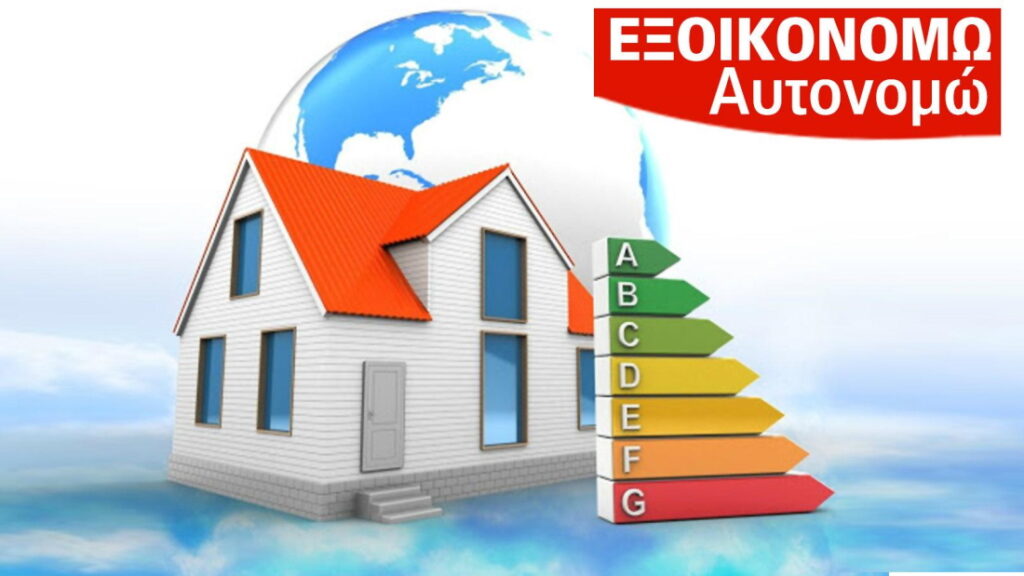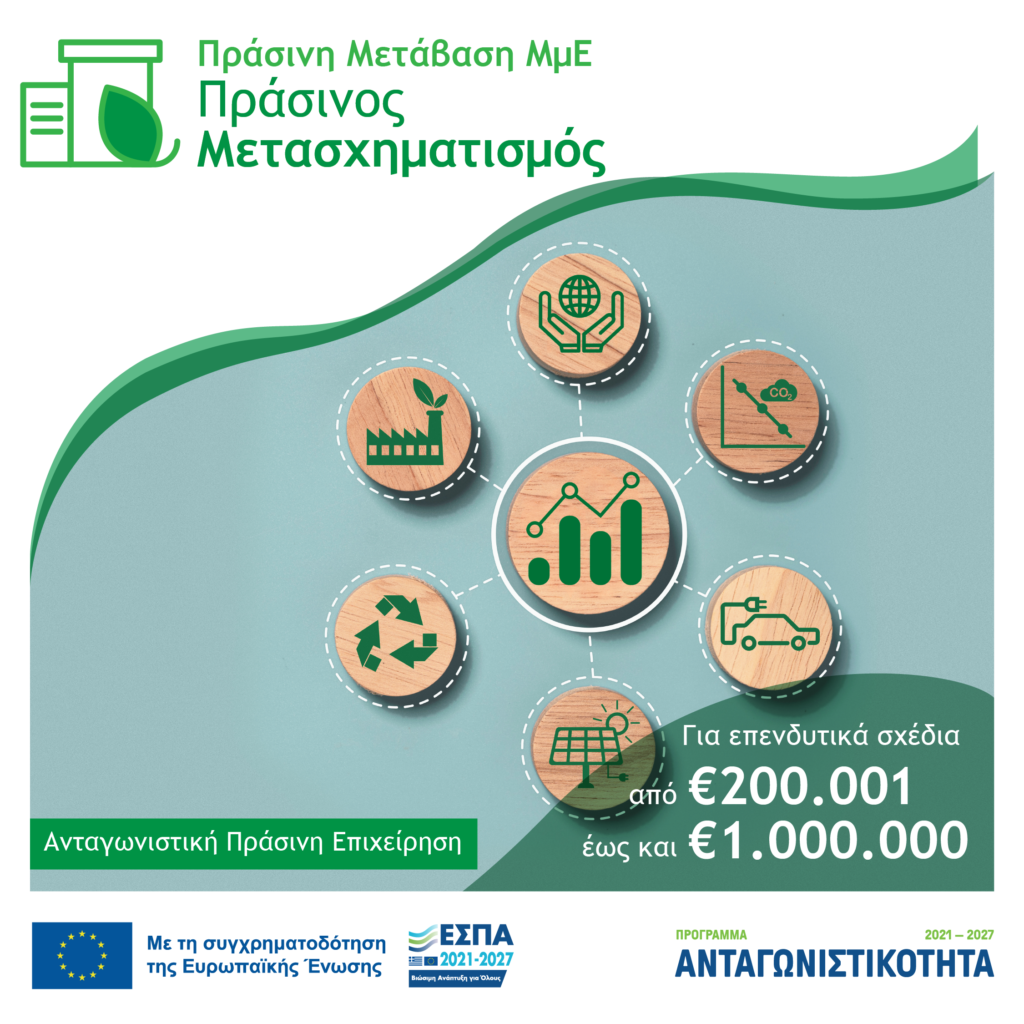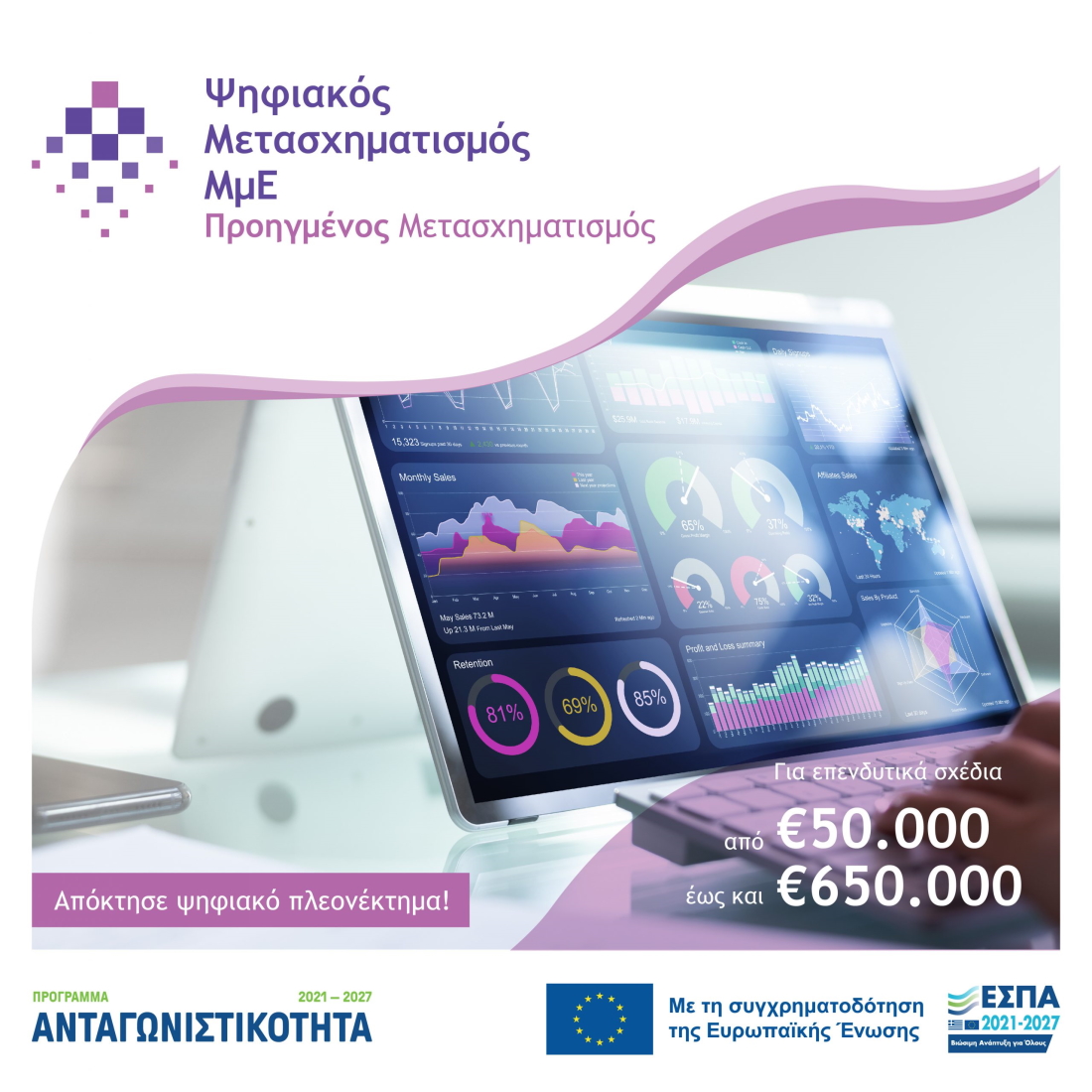
From September, the platform for the programme is expected to finally go online: Save - Operate, which will subsidises medium, small and micro enterprises out of branches of Trade , of services and the tourism . Especially for smaller businesses, both from the secondary as well as the third sector, subsidies to improve their energy efficiency are a one-way street, given the difficulty of accessing finance for the required interventions.
Indeed, micro companies with fewer than ten employees and an annual turnover of less than under 2 million euros constitute the vast majority of the Greek economy. The scope for improving the energy efficiency of their building stock is large, as around 65% of their buildings are mainly commercial buildings, hotels and private offices, which were built before 1980 and have been renovated to a small extent.
The Energy Efficiency - Business programme for the energy upgrading of businesses is funded by the Recovery and Resilience Fund and its initial budget was EUR 100 million. euros for the Trade and Services sectors and 100 mill. euros for the sector of Tourism. ΣAccording to reports, the total amount may be increased with extra funds from RePowerEu that could reach up to €100 million. euro. According to the pre-publication of the Programme Guide last October, the programme will support projects of companies active in the following sectors Trade and Services a total investment budget of up to EUR 100.000 and in the sector of Tourism with investment amount from EUR 50.000 up to EUR 500.000, provided that the unit will not exceed a capacity of 100 beds. The amounts do not include VAT, which is not an eligible cost.
The aid rates for the Economy - Business
The aid rates for investment projects for all eligible expenditure will be 40% for medium-sized enterprises and 50% for small and medium-sized enterprises. Also for support costs (De Minimis), the subsidy will be 40% for all enterprises. An advance payment of up to 40% of the public expenditure against a letter of guarantee will also be provided for.
Eligible costs
Eligible costs for the Energy Efficiency - Business programme will include, indicatively, energy upgrading interventions:
- the building envelope (thermal insulation, installation of shading systems, etc.)
- the lighting system (replacement with new technology or installation of automation to reduce consumption, etc.)
They will also be subsidised:
- the replacement of boilers by heat pumps or ventilation systems
- the strengthening of the thermal insulation of distribution networks
- the replacement of terminal units by new, more energy-efficient ones
- the installation of Renewable Energy Sources systems (solar thermal, photovoltaic, solar thermal, photovoltaic
- small wind turbines and geothermal heat pumps with geothermal heat exchangers)
- energy storage batteries, etc.
Also funded will be:
- the services of an energy auditor and inspector for the issuance of Energy Performance Certificates (EPCs), a monitoring and management consultant
- the development and certification of an energy management system; and
- the preparation of studies and surveys for the implementation of the energy audit results report
However, the eligible subsidised costs for consultancy, support work as a whole may not exceed 7% of the total eligible budget of the investment project and in any case EUR 30,000. The final eligibility of expenditure will be directly linked to the achievement of the energy objective, which is to upgrade the energy class of the infrastructure (based on the EIAs) by at least three energy classes compared to the existing classification, or compulsory class B when it comes to radical renovation.
An investment project will not be considered eligible the expenditure of which will have been incurred before the year of commencement of eligibility of expenditure. Also, work started before the submission of the application for funding will result in the rejection of the entire proposal. The Duration the implementation of each proposal may not exceed 18 months from the date of adoption of the decision to include the investment proposal.




